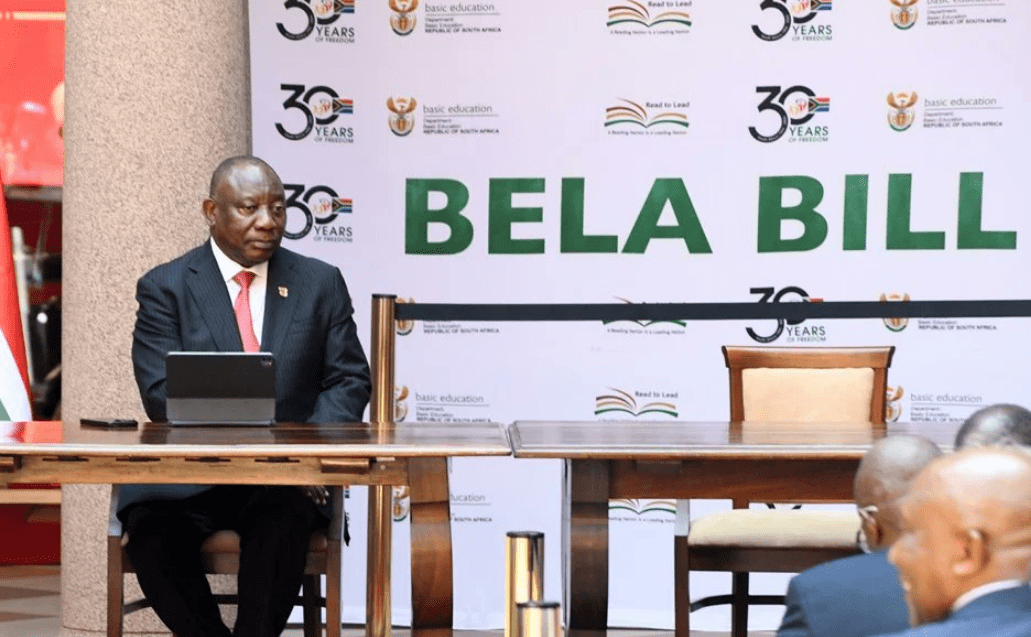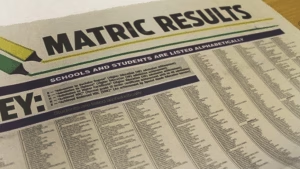As the deadline approaches for the implementation of two contentious sections of the Basic Education Laws Amendment (BELA) Act, education advocate Hendrick Makaneta identifies the core dispute as the use of Afrikaans as the medium of instruction in certain schools.
The BELA Act was enacted by Parliament in October 2023 and received presidential assent from President Cyril Ramaphosa at the Union Buildings on September 13, 2024. Despite its passage, the enforcement of Sections 4 and 5 was postponed by President Ramaphosa for three months. This delay was intended to facilitate multi-party discussions and develop proposals to address the disagreements surrounding these specific sections.
A crucial component of the BELA Act, Sections 4 and 5, delineates the responsibilities of school governing bodies (SGBs) and provincial heads of departments concerning student admissions and language policies. These provisions aim to address historical inequalities where language and admissions policies were frequently employed to exclude black learners.
The final deadline to resolve these significant matters is set for this Friday.
In an interview with Independent Media, Makaneta expressed apprehension that if President Ramaphosa enacts these clauses on Friday, Afrikaans-medium schools may lose their control over mother tongue education.
“It should be clear at this point that clauses 4 and 5 will transfer power from the school governing bodies in relation to admissions and language policies, respectively,” Makaneta stated.
“The two clauses will do two things simultaneously. There will be greater access to Afrikaans schools by marginalised learners from diverse backgrounds, and this will automatically compel schools to develop diverse language policies.
Afrikaans schools will lose their grip on mother tongue education.”
“The president could approve clauses 4 and 5 as they are, or he could refer clauses 4 and 5 back to the National Assembly for revision.
If the president chooses to approve clauses 4 and 5 as they are, there will be litigation from concerned groups,” he added.
“But whatever happens on Friday, we wish to call on all stakeholders to put the best interests of all children first.”
Conversely, Independent Media reports that the South African Democratic Teachers Union (Sadtu) attributes President Ramaphosa’s decision to delay the enactment of these divisive clauses to political expediency. According to the Cape Times, Sadtu, an affiliate of the African National Congress (ANC), has informed Ramaphosa in a letter that it is prepared to legally challenge his decision should he proceed with implementing the two sections. The union has also threatened strike action.
In an interview with broadcaster Newzroom Afrika, Sadtu spokesperson Nomusa Cembi defended the clauses, asserting their correctness and constitutionality.
“We believe that it had to do with political expediency because the delay in these two clauses, we believe that those clauses are correct, they are constitutional, and they abide by the law. All processes were done, they were put in place to ensure that the Bill was passed into law. It was passed by a majority,” Cembi explained.
“Everything was done accordingly and every stakeholder was given a chance to make their views known regarding the Bela Bill. At the end of the day, the majority in Parliament passed this for the president to sign.
It cannot be that at the end of it now, the process goes back. It is the DA (Democratic Alliance) that was not happy with the Act. We believe this (Ramaphosa delaying the clauses) was to please the DA because it is the DA who were opposed. The majority in Parliament ruled for the Bela Bill to be passed into law.”
The Cape Times further reported on Friday that President Ramaphosa is facing increasing pressure as the deadline for submissions on the contested sections of the BELA Act looms. Sadtu, recognized as the country’s largest teacher union, advocates for the implementation of Sections 4 and 5 by or no later than December 13.
These sections specifically transfer the authority for admitting pupils into public schools and determining a school’s language policy from school governing bodies to provincial departments.
BELA Bill: the truth vs misinformation (1/3) pic.twitter.com/zAvwP3cMOy
— Dan Corder 📺 (@DanCorderOnAir) September 12, 2024
Earlier on Tuesday, Independent Media noted that as the deadline for implementing the divisive sections of the BELA Act nears, the Democratic Alliance (DA) has cautioned the African National Congress (ANC) against removing Basic Education Minister Siviwe Gwarube from her position within the national department.
“Two things – on the firing of Minister Gwarube, they must try. The basic education ministry is a Democratic Alliance ministry. Nobody gets to tell the Democratic Alliance who gets to occupy that seat,” said DA spokesperson Karabo Khakhau.
“The DA has decided that we have 100% in Minister Gwarube to stay in that position. She hasn’t broken any law, she hasn’t done anything that makes us question her integrity and her capacity to lead that ministry. So, that won’t change. They must try.”

















